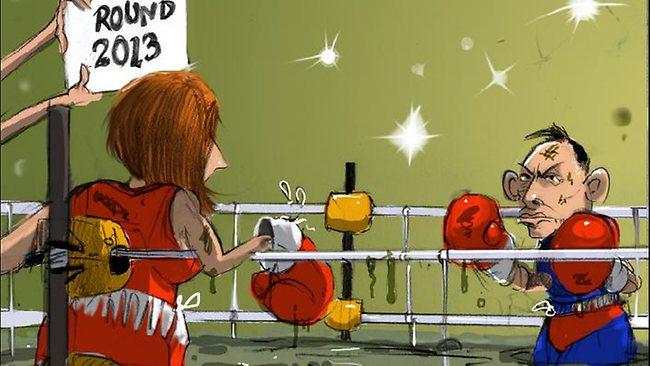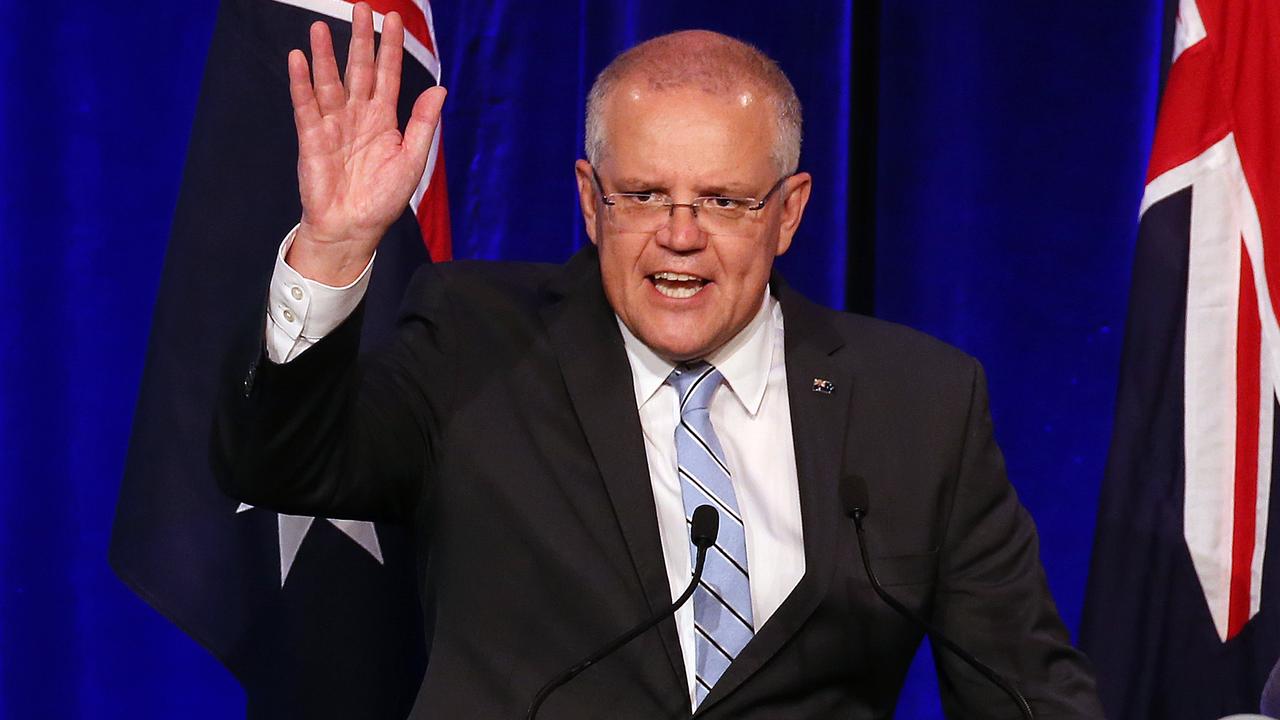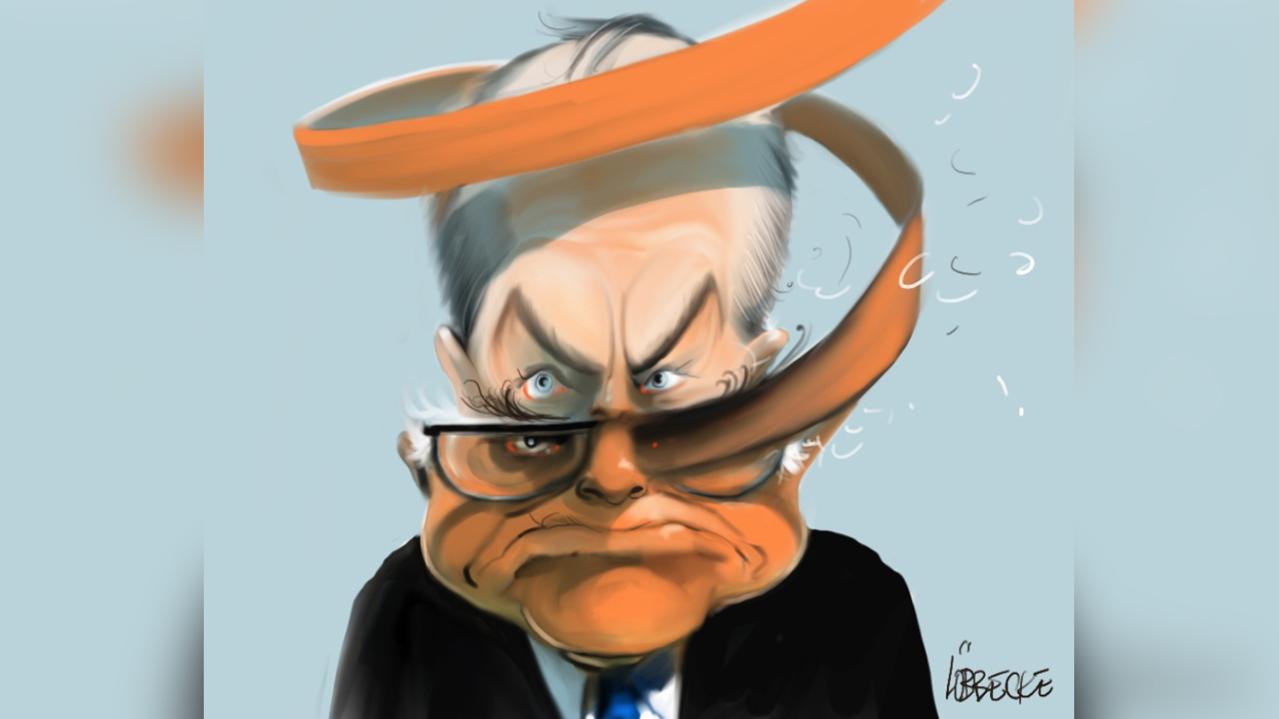
AS the political class wakes up from its summer slumber ahead of next month's return of parliamentary sittings, it won't take long for hostilities to start up again. This is an election year, and when both major parties assess the most powerful political opportunities they can exploit to maximise their chances, negative messaging will again dominate the year.
Voters tire quickly when parties go on the attack, contributing to the diminishing respect the public has for the political class. But research (by both academics and party operatives) shows negative campaigning works.
Labor needs to use this year to promote itself as capable of governing without incident in order to give voters a sense that it can be trusted with a third term after the tumult of the minority parliament. And the Coalition will need to roll out a few policies to show that it stands up as a viable alternative government.
These are positive messages, to be sure. But both strategies will elicit negative responses from their opponents. The Coalition will quickly attempt to disrupt the 2013 parliamentary year in order to disprove the hypothesis that Labor can govern without incident, and Labor will continue to attack Tony Abbott for failing to spell out alternative policies in the hope that even if he does, voters won't notice.
The skirmishes over attempts at positive messaging will therefore get messy. But these will only be secondary engagements to the main political contest of the year.
Labor will look to exploit Abbott's personal unpopularity, especially among female voters, and the Coalition will seek to highlight the credibility gap that exists between what Labor promises and what it delivers.
Abbott will feature front and centre in Labor campaign ads, as well as in the number of mentions he receives in the hundreds of media conferences ministers hold during the year. Equally, inconsistent quotes from Labor ministers, and the PM in particular, will dominate the advertising campaign the Coalition embarks on, including what Labor said about itself during last year's brutal leadership showdown in February.
We are in for a particularly nasty election year, much worse than in previous election years.
Once upon a time Abbott and Julia Gillard got on quite well. They shared a morning commercial television slot debating politics. They certainly had respect for one another.
But that has evaporated entirely.
Gillard's loathing of Abbott started soon after he began accusing her of lying to the Australian people with her carbon tax backflip, not to mention following his accusations that she broke the law in relation to the AWU saga.
Abbott lost all respect for the PM after she accused him of being a misogynist. The summer months have done nothing to cool the tensions.
The animosity that exists between the major party leaders is made worse by party research which shows that the very issues which caused the breakdown in their relationship are key vote-changing factors.
Labor's best chance of pulling off an unlikely victory is to demonise Abbott to the point where the public just won't risk voting for him. The Coalition's best strategy is to constantly remind voters of the credibility gap between what Labor pledges versus what it delivers.
Rather than the animosity of the past therefore being forgotten in a busy election year focused on new policy debates, the year will see Abbott and Gillard devoting their attention to the very issues that infuriate one another, as will their respective frontbenches.
At an individual level the dynamic of a personal slanging match probably favours Gillard, because where she thrives on the fight, Abbott's persona struggles when he gets nasty.
Take, for example, Abbott's disgrace in suggesting that the Gillard government should have "died of shame" in his parliamentary speech during the motion to remove Peter Slipper as Speaker, so soon after Alan Jones had referred to the PM's father as having "died of shame".
When the testosterone is flowing Abbott sometimes loses it. This had long been a feature of his service as a minister during the Howard years.
In contrast, Gillard's personal approval ratings tend to improve off the back of her more spirited performances. Even the hypocrisy of delivering her tirade against sexism in the context of opposing a vote to remove Slipper for sexist text messages didn't undercut the speech's approval.
Gillard does better when she is fighting for survival, whatever the circumstances.
And so long as Labor's polling numbers remain depressed such fight in the PM is an important antidote to internal divisions and leadership speculation. Because you can bet that the Rudd forces won't go away this year. The closer an election gets the more likely it will become that fear of losing will become the dominant emotion among Labor MPs, as opposed to loyalty to Gillard. The difficulty at the macro level for her is that every time she engages in a personal slanging match with Abbott, while she might win the battle at hand she risks losing the war. Labor needs to show it can govern without incident, and part of that process involves the Prime Minister appearing prime ministerial. When Gillard assumes the attack-dog role taking on Abbott she lessens Labor's capacity to rise above the Coalition's attacks.
One of the difficulties for Labor is that attacking Abbott personally works, but it is a hard approach for a PM to sustain while appearing to put the government on track for an event-free lead-up to an election. But when senior ministers do the attacking instead, it never resonates as effectively with the media.
Slanging matches also help define the debate on a turf that the Coalition wants to be operating on. Abbott suffers personally from confrontational head-on attacks, but the messages behind his attacks on behalf of the Coalition do underscore the dysfunction of the government, and highlight the examples of Labor's lost credibility. From the carbon-tax backflip to the broken pledge to achieve a surplus, Abbott's attacks will continue to undermine the government, even if doubts about Abbott himself as an alternative PM suppress the size of the swing to the Coalition.
The wild card this year will be what, if anything, Labor does with Mal Brough's involvement in the Slipper saga, including whether it decides to go after Abbott over what he knew and when.
We will see soon enough when parliament resumes. The protection of parliamentary privilege will allow the government to really open its shoulders on this issue if it chooses to.
Certainly Abbott standing by Brough as strongly as he has done is risky business, perhaps a factor in last week's tightening Newspoll. However, depending on what Abbott knew about Brough's involvement, he may not have had a choice.
For Labor to find a way to win the election it will need to hope that the old adage - oppositions don't win elections, governments lose them - does not ring true.
While there is little about the opposition worth electing, the government has done more than enough to deserve to lose.
Peter van Onselen is a professor at the University of Western Australia.



